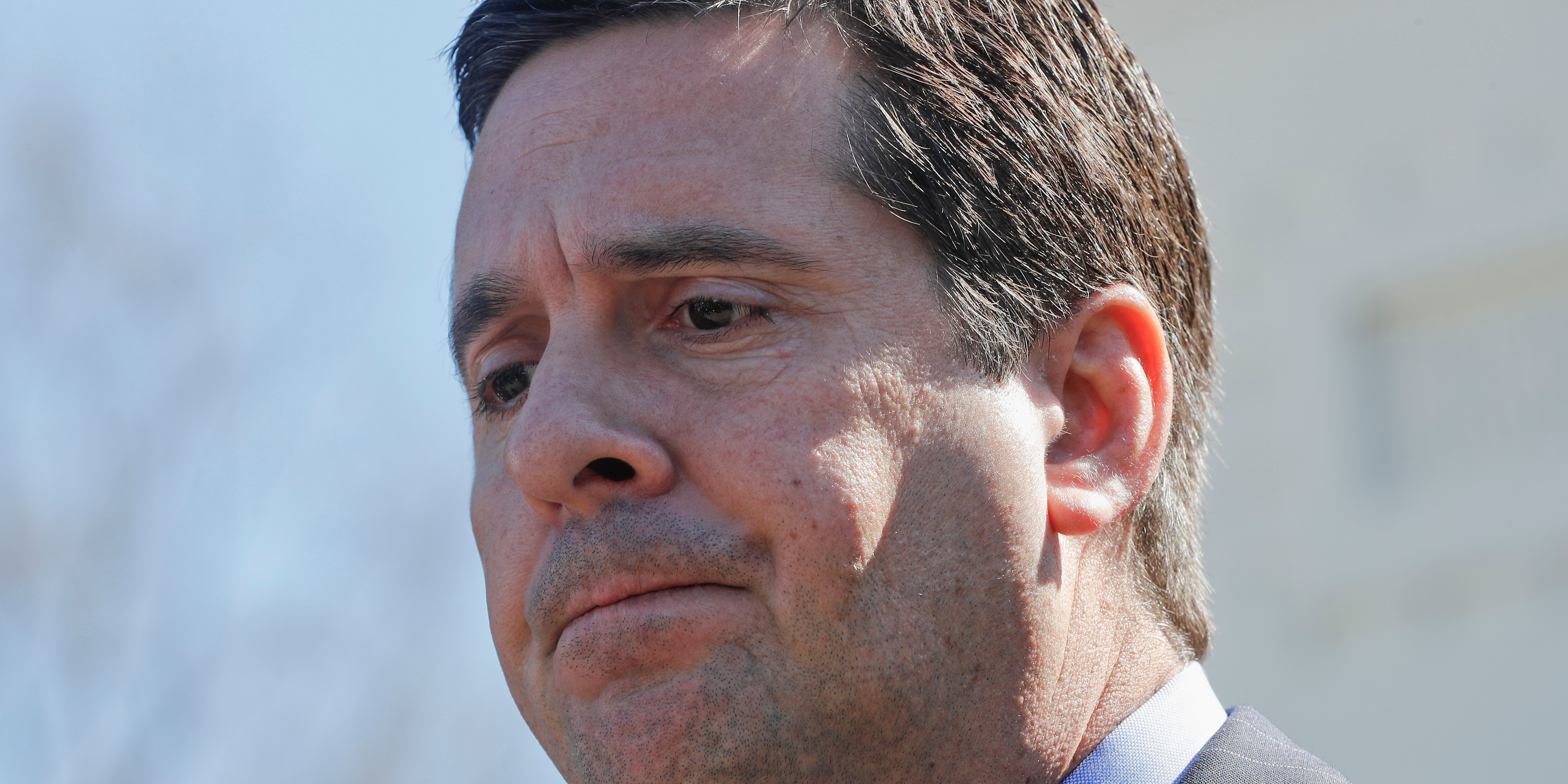- The Nunes memo’s claim that the FBI and Department of Justice misled a Foreign Intelligence Surveillance Court when seeking to wiretap Trump campaign adviser Carter Page may have been quashed.
- Officials familiar with the matter told The Washington Post and The New York Times that the DOJ made it clear to the court that information contained in a dossier they submitted as part of a FISA application to surveil Page was politically motivated.
- The revelation undercuts the most important claim in Nunes’ memo as he seeks to characterize the FBI and the DOJ as corrupt and biased against President Donald Trump.
The most important claim in a controversial memo released Friday by the House Intelligence Committee – that the FBI and the Department of Justice misled a Foreign Intelligence Surveillance Court (FISC) when they submitted an application to surveil a key Trump campaign adviser – may have just been quashed.
The memo was released as part of an investigation House Intelligence Committee chairman Devin Nunes has been conducting over the past year into what he characterizes as bias and corruption within the FBI and DOJ.
In particular, the Nunes memo, which was declassified Friday by President Donald Trump, alleges that top DOJ officials concealed the political motives behind a dossier they submitted as part of a Foreign Intelligence Surveillance Act (FISA) application to wiretap Carter Page, who worked as an early foreign-policy adviser on Trump’s campaign.
The claim fueled accusations from Trump and his loyalists that the Russia investigation is not an independent inquiry into potential collusion between the campaign and Russia, but a Democrat-led “witch hunt” meant to undermine his presidency.
But The Washington Post reported late Friday night that the court that approved the warrant was aware at the time that the dossier's production was politically motivated.
One official with knowledge of the matter told The Post that the DOJ made "ample disclosure of relevant, material facts" to the FISC which revealed "the research was being paid for by a political entity."
"No thinking person who read any of these applications would come to any other conclusion" other than that the dossier's production was carried out "at the behest of people with a partisan aim and that it was being done in opposition to Trump," they added.
The revelation appears to corroborate claims made in a 10-page rebuttal memo crafted by Democrats on the House Intelligence Committee. Sources told The New York Times on Friday that the Democratic memo also says the FBI informed the FISC that the dossier was politically motivated, but did not reveal which political entity specifically financed it.
The dossier, which was compiled by former MI6 officer Christopher Steele and alleges a number of improper ties between Trump and Russia, has become a central point of controversy as the Russia investigation picks up steam.
It was originally funded by a group of Republicans who opposed Trump during the Republican primaries. After Trump became the party's nominee, Hillary Clinton's campaign and the Democratic National Committee hired the Perkins Coie law firm, which in turn retained the opposition-research firm Fusion GPS to fund the dossier's production.
Though Trump and his allies have slammed the document as "fake" and "phony" - and while it does contain some dubious allegations that have not been corroborated - both the FBI and the Senate Intelligence Committee are using it as a "roadmap" in their investigations and have verified a number of its claims.
Nunes on Friday said he had "an obligation to the American people" to release the memo, which he said showed "FISA abuse" by the DOJ and the FBI. He added that the Page wiretap was "outrageous" and based on "salacious information paid for by a political campaign."
But the dossier was not the sole factor that prompted the FBI to launch its investigation or submit a FISA application targeting Page. To be sure, The Wall Street Journal reported on Thursday that Page was on the radar of US counterintelligence officials since at least 2013 - more than three years before he joined the Trump campaign.

